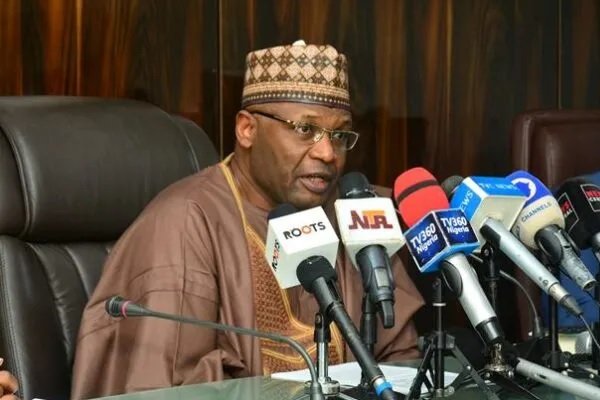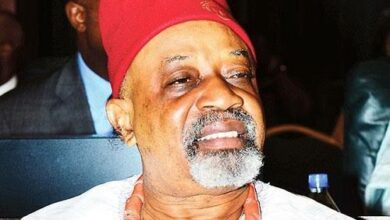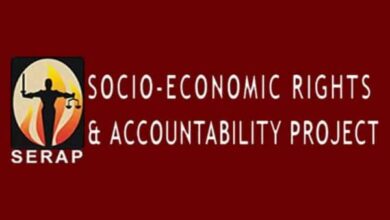INEC Chairman: Treatise on How Mahmood Ruled, Ruined INEC & Why Character Matters By Okoro Chinedum Benedict

Introduction
In a few days, Prof. Mahmood Yakubu, Chairman of the Independent National Electoral Commission (INEC), will vacate the exalted office he has occupied for nearly a decade.
Indeed, the office of the INEC Chairman is akin to a throne, for it is one of the most powerful, yet unelected, positions in Nigeria—bestowed solely by Presidential appointment.
Once vested with this authority, an INEC Chairman wields influence capable of shaping the destiny of the nation.
His first election often serves as a rehearsal to test his powers—granting token victories to smaller parties to create an illusion of fairness—before fully consolidating control.
Thereafter, the Chairman assumes a larger-than-life posture, deciding which political actors flourish and which are extinguished.
It is precisely because elections determine governance, legitimacy, and the direction of national development that philosophers and statesmen across history insisted on impartial election management bodies.
A country’s credibility, governance culture, and even its international image is reflected in the integrity of its electoral institutions.
In the same measure, the personal character of those entrusted with the sacred duty of managing elections determines whether such institutions inspire confidence or breed disillusionment.
Mahmood’s Legacy at INEC
Prof. Mahmood Yakubu is, without question, an accomplished academic. Yet, his tenure at INEC has been marred by controversies, disregard for court judgments, and interference in party administration.
Instead of leaving office with his reputation intact, his record is now deeply tainted.
The NRM Case
A striking example is the treatment of the National Rescue Movement (NRM).
On March 5, 2025, Justice Obiora Atuegwu Egwuatu delivered judgment in Suit No: FHC/ABJ/CS/45/2025, ordering INEC to recognize the National Executives of the NRM elected at its Emergency National Convention of January 17, 2025.
Instead of complying, INEC blatantly ignored the court order and continued to list Ambassador Isaac Chigozie Udeh—who had already handed over to Chief Edozie Njoku—as Chairman on its website.
Worse still, INEC’s then Director of Election and Party Monitoring, Mrs. Joan Arabs, deployed staff funded by taxpayers to monitor an illegal primary not sanctioned by the party’s recognized executives.
In open defiance of the court, she handed over the NRM’s candidate nomination code to persons unknown to the party, thereby foisting an unauthorized candidate on it.
This brazen disregard for the law not only undermined judicial authority but also exposed INEC as complicit in fraud against a registered political party.
A Pattern of Defiance
Despite exhausting the 90-day window for appeal, INEC still sought leave to appeal the judgment—an act designed to waste time and plant legal landmines for Mahmood’s successor.
To compound matters, INEC went further to unlawfully recognize Mr. Chinedu Obi, the party’s National Welfare Officer, as National Chairman of NRM, in direct violation of the court judgment.
This reckless decision inflamed internal party tensions and raised the critical question: Whose interest is INEC serving?
Why Character Matters in Public Office
Abraham Lincoln wisely noted: ‘Character is like a tree and reputation like its shadow. The shadow is what we think of it; the tree is the real thing… nearly all men can stand adversity, but if you want to test a man’s character, give him power.”
Power, as INEC Chairman, tested Prof. Mahmood’s character—and his record shows bias, arrogance, and disregard for the rule of law. Such traits are incompatible with the responsibilities of election management in a fragile democracy.
When an electoral umpire allows personal bias to overwhelm institutional duty, the credibility of the entire system collapses. Indeed, Prof. Mahmood’s legacy demonstrates how one individual’s choices can erode public confidence in democracy itself.
Consequences and Accountability
The danger in Mahmood’s conduct is clear: by unlawfully excluding the NRM from participating in elections, he has set the stage for avoidable repeat polls—wasting scarce public funds and destabilizing the polity.
We, as Nigerians, therefore reserve the right to pursue personal liability claims against any INEC staff, including Prof. Mahmood, for misuse of public office and public resources.
INEC is not above the law, and those who recklessly compromise its integrity must be held accountable.
Conclusion
A nation’s democratic destiny depends on the character of those who guard its elections.
Unfortunately, Prof. Mahmood Yakubu’s tenure as INEC Chairman will be remembered not for impartiality or reform, but for controversy, disobedience to the courts, and damage to the Commission’s credibility.
In the final analysis, Mahmood has ruled INEC with unchecked power—and in doing so, he has ruined its reputation.
His tenure is a warning that without integrity at the helm, no institution, however sacred, can safeguard democracy.
By Okoro Chinedum Benedict
National Administrative Secretary, NRM
The post INEC Chairman: Treatise on How Mahmood Ruled, Ruined INEC & Why Character Matters
By Okoro Chinedum Benedict
first appeared on Diaspora Digital Media DDM.





